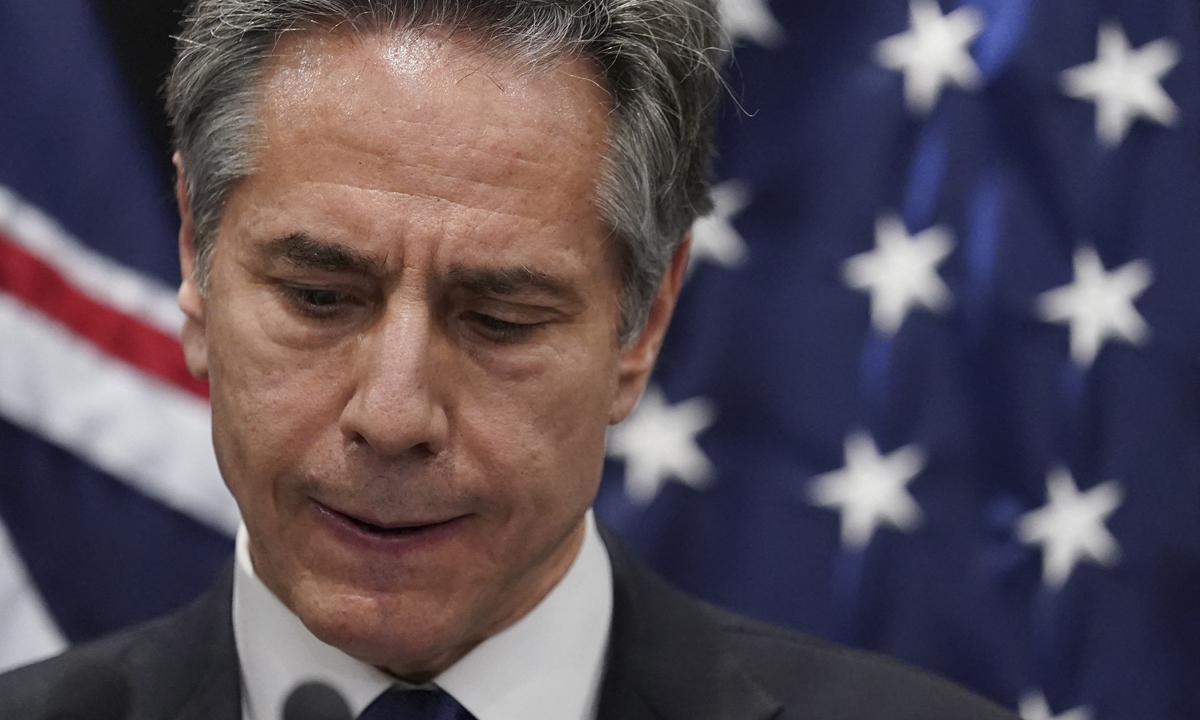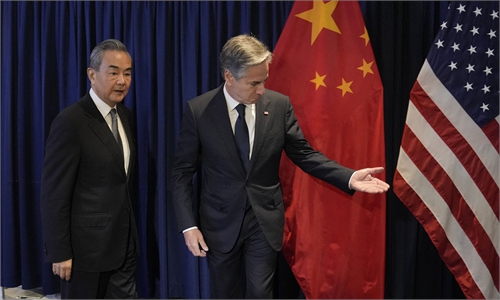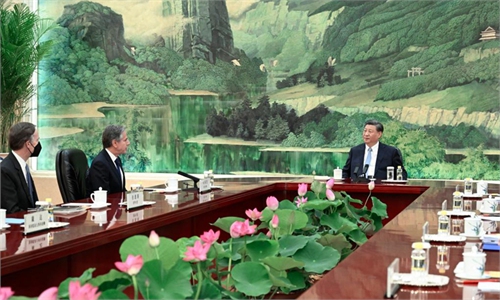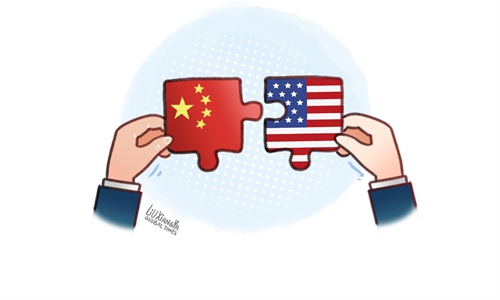Blinken's visit 'to woo Pacific island countries, press allies harder' as US eager for stronger presence

US Secretary of State Antony Blinken Photo: AFP
US Secretary of State Antony Blinken will inaugurate an embassy in Tonga and visit New Zealand and Australia from July 24 to 29, as part of Washington's latest efforts to increase its presence in the South Pacific to counter China.
Analysts on Friday predicted that the US, dissatisfied with entrusting Australia to influence the region, will advance aggressively by itself and rope in more allies to build up a regional presence, but Pacific island countries (PICs) will not trust "gestures" without substantial benefits.
The US State Department said Thursday that Blinken will dedicate a new US embassy in the Tongan capital of Nukuʻalofa on July 26. He will also attend a women's World Cup match in Wellington and have meetings with New Zealand officials. Blinken will then travel to Australia for meetings with US Defense Secretary Lloyd Austin and their Australian counterparts on July 28-29.
Blinken's trip was announced a week after the State Department notified Congress that it plans a massive increase in diplomatic personnel and spending for facilities at new US embassies in the Pacific islands, per media reports.
China has permanent diplomatic facilities in eight of the 12 PICs that the US recognizes and the US "needs to catch up," according to the brief to Congress obtained by Associated Press.
"Our embassy is not being set up to counter China," a senior State Department official told journalists on condition of anonymity, "We're delivering on our promise in stepping up our engagement in Tonga and the Pacific at large," AFP reported.
Chen Hong, executive director at the Asia Pacific Studies Center of East China Normal University, told the Global Times on Friday that the US' aggressive advances in the South Pacific have exposed its strategic anxiety.
Washington entrusted Canberra as an agent to influence the region in past decades, but has been increasingly dissatisfied with its performance, Chen said, citing the stable development of China-Solomon Islands relations despite Australia's "coaxing and coercing."
The US urgently needs to build the South Pacific into a "handle" to carry out its "Indo-Pacific Strategy," and Chen predicted more aggressive moves by the US to woo the PICs and press allies such as New Zealand and Australia.
The US is also inviting non-regional allies, such as the UK, to enhance its ability to manipulate, analysts said, citing US-led cliques such as AUKUS and the Quad.
US President Joe Biden will host a second summit with leaders of PICs in September. At the first-ever summit of its kind in September 2022, the US pledged stronger support for the region, but little cooperation of substance has taken place.
It just demonstrated that US-pledged aid is nothing but "lip service" and the new embassies are more like political symbols without much concrete business to conduct, Chen noted.
When PICs seek to maximize all possible resources to boost development, they know very well Washington treats them as strategic chess pieces in its rivalry with China, and the concept of "America First" always dominates its global diplomatic designs, Chen said.



